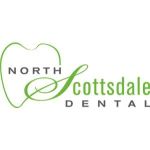Effective Oral Health Tips for Preventing Tooth Decay
- 1. Understanding Tooth Decay and Its Causes
- 2. Essential Daily Oral Care Tips to Prevent Tooth Decay
- 3. The Importance of Diet in Preventing Tooth Decay
- 4. Why Regular Dental Checkups Are Crucial
- 5. Real-Life Case Study: Preventing Tooth Decay with Good Habits
1. Understanding Tooth Decay and Its Causes
Tooth decay is one of the most common dental problems affecting people of all ages. It occurs when plaque, a sticky film of bacteria, forms on your teeth and produces acids that erode tooth enamel. If left untreated, decay can lead to cavities, tooth sensitivity, and even tooth loss. The primary cause of tooth decay is poor oral hygiene, but several other factors can contribute to its development.
Understanding the causes of tooth decay is the first step in preventing it. Key factors include:
- Poor Oral Hygiene: Infrequent brushing and flossing allow plaque to build up, increasing the risk of cavities.
- Diet: Frequent consumption of sugary or acidic foods can feed bacteria and promote plaque formation.
- Dry Mouth: Reduced saliva flow can leave your teeth vulnerable to decay because saliva helps neutralize acids and wash away food particles.
- Genetics: Some people are more predisposed to tooth decay due to their genetics, including weaker enamel.
By understanding these causes, you can take proactive measures to protect your teeth and prevent decay from occurring in the first place.
2. Essential Daily Oral Care Tips to Prevent Tooth Decay
Proper oral hygiene is the cornerstone of preventing tooth decay. By incorporating the following daily care habits into your routine, you can significantly reduce your risk of developing cavities:
- Brush Twice a Day: Brush your teeth for at least two minutes twice a day with fluoride toothpaste to remove plaque and prevent decay. Make sure to reach all surfaces of your teeth, including the back molars.
- Floss Daily: Flossing is essential for removing food particles and plaque between teeth that your toothbrush can't reach. Make it a habit to floss every day.
- Use Mouthwash: Antimicrobial mouthwash helps kill bacteria and prevents plaque buildup, adding an extra layer of protection against decay.
- Replace Your Toothbrush Regularly: A worn toothbrush is less effective at cleaning your teeth. Replace your toothbrush every three months or sooner if the bristles are frayed.
Consistency is key to maintaining oral health. These simple habits can go a long way in preventing tooth decay and preserving your smile.
3. The Importance of Diet in Preventing Tooth Decay
What you eat plays a significant role in the health of your teeth. Certain foods can help strengthen enamel and prevent decay, while others can increase the risk of cavities. Here are some dietary tips to help protect your teeth:
- Limit Sugary Foods and Drinks: Sugary snacks and drinks provide fuel for the bacteria that cause tooth decay. Try to limit your intake of sugary foods, especially between meals.
- Eat Calcium-Rich Foods: Dairy products like milk, cheese, and yogurt, as well as leafy greens, are rich in calcium, which helps strengthen tooth enamel.
- Snack Smart: If you need a snack, choose tooth-friendly options like fruits, vegetables, and nuts. These foods are less likely to cause plaque buildup and can even help clean your teeth.
- Drink Water: Drinking water, especially after meals, helps rinse away food particles and bacteria, reducing your risk of cavities.
By making wise dietary choices, you can significantly reduce the chances of developing tooth decay and promote overall oral health.
4. Why Regular Dental Checkups Are Crucial
While at-home care is vital for preventing tooth decay, regular visits to the dentist are just as important. Dentists can detect early signs of decay before they become serious problems, allowing for timely intervention. Additionally, professional cleanings help remove tartar buildup that can't be removed through regular brushing and flossing.
During your checkup, your dentist will:
- Examine your teeth and gums for signs of decay, gum disease, and other oral health issues.
- Provide a professional cleaning to remove plaque and tartar.
- Offer advice on your oral care routine and recommend any necessary treatments, such as fluoride treatments or sealants.
Regular dental checkups are essential for maintaining a healthy mouth and preventing tooth decay from causing long-term damage to your teeth.
5. Real-Life Case Study: Preventing Tooth Decay with Good Habits
Meet John, a 35-year-old man who struggled with cavities throughout his teenage years. He often ate sugary snacks, skipped brushing his teeth at night, and rarely visited the dentist. As a result, he developed several cavities, leading to root canals and fillings.
After a conversation with his dentist, John committed to improving his oral hygiene routine. He started brushing and flossing consistently, cutting back on sugary foods, and scheduling regular checkups. Over the next two years, John saw a significant improvement in his dental health. He no longer had cavities and maintained a healthy, beautiful smile.
John's story illustrates how effective oral health tips and consistent habits can prevent tooth decay and improve your overall dental health.







 Nashua Dentistry and Orthodontics for Children4.0 (370 review)
Nashua Dentistry and Orthodontics for Children4.0 (370 review) Community Dental Care - St. Paul3.0 (105 review)
Community Dental Care - St. Paul3.0 (105 review) North Scottsdale Dental4.0 (211 review)
North Scottsdale Dental4.0 (211 review) Premiere Dental of West Deptford4.0 (352 review)
Premiere Dental of West Deptford4.0 (352 review) Corona Hills Modern Dentistry and Orthodontics4.0 (137 review)
Corona Hills Modern Dentistry and Orthodontics4.0 (137 review) Light Dental Studios of University Place4.0 (279 review)
Light Dental Studios of University Place4.0 (279 review) The Importance of Oral Health Education During Pregnancy for a Healthy Pregnancy
The Importance of Oral Health Education During Pregnancy for a Healthy Pregnancy Best Tips for Brushing Your Teeth Properly for Healthy Gums: Essential Techniques for Oral Health
Best Tips for Brushing Your Teeth Properly for Healthy Gums: Essential Techniques for Oral Health Why Skipping Dental Checkups Can Lead to Bigger Oral Health Problems
Why Skipping Dental Checkups Can Lead to Bigger Oral Health Problems Advantages of Porcelain Dental Restorations
Advantages of Porcelain Dental Restorations How Can Diabetes Cause Tooth and Gum Problems? Preventing and Managing Oral Health Issues
How Can Diabetes Cause Tooth and Gum Problems? Preventing and Managing Oral Health Issues Healthy Habits for Promoting Good Oral Health and Hygiene: Tips for a Healthy Smile
Healthy Habits for Promoting Good Oral Health and Hygiene: Tips for a Healthy Smile